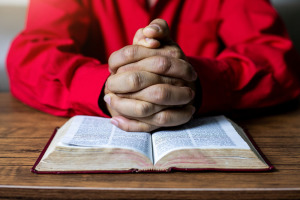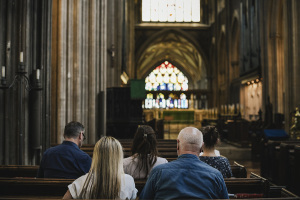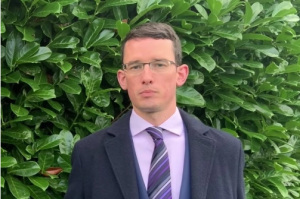Most Americans Think Religious Freedom Fast Declining in US
Millions of American adults, particularly Protestants and evangelicals, feel religious freedoms have grown worse in the last decade in the United States, and foresee further restrictions in the years to come, according to the results of a new study.
Slightly more than half of adults say they are very (29 percent) or somewhat (22 percent) concerned that religious freedom in the U.S. will become more restricted in the next five years, shows the research conducted by Calif.-based Barna Group in partnership with Clapham Group.
The study, released Friday and which included 1,008 adults from across the religious spectrum, representing the nation's population from the most active to the most skeptical, shows that those who are religious are more concerned than those who aren't.
Looking at religious groups separately, the survey found that 71 percent of evangelicals, 46 percent of practicing Protestants, and 30 percent of practicing Catholics are "very concerned" about this prospect.
Concerns are not only over the future of religious freedom, but also about the current level of restraints, the study shows. Among practicing Protestants, 48 percent say they perceive freedom of religion to have grown worse in recent years, while 60 percent of evangelicals perceive religious freedoms to have grown worse.
"The simple fact is that America is becoming more religiously diverse," said David Kinnaman, president of Barna Group.
"This trend includes growth of faiths other than Christianity, increasing expressions of Christianity beyond white Protestantism, and the growth of the no-faith segment – the so-called religiously unaffiliated," he added. "These social changes create increasing tension about how something everyone essentially agrees on – freedom of religion – ought to work itself out in the real world where people find themselves disagreeing on important matters."
The study suggests there is widespread agreement on what "religious freedom" means. About 90 percent of Americans agreed with the statement, "True religious freedom means all citizens must have freedom of conscience, which means being able to believe and practice the core commitments and values of your faith."
Yet, many controversial aspects of religious liberty are emerging, with most Americans subscribing to "us-versus-them narratives."
More than half of Americans (57 percent) believe "religious freedom has become more restricted in the U.S. because some groups have actively tried to move society away from traditional Christian values." This opinion is more common among practicing Catholics (62 percent) and Protestants (76 percent) and is nearly a universal perception among evangelicals (97 percent).
Slightly more than 31 percent of Americans believe "the gay and lesbian community is the most active group trying to remove Christian values from the country." Those who believe so include practicing Protestants (42 percent), practicing Catholics (32 percent), and evangelicals (72 percent).
On values that should dominate America's vision for the future, there is a substantial difference of opinion, the study found.
About 23 percent of Americans believe traditional Judeo-Christian values should be given preference in the public square, while 66 percent say there's no one set of values that should dominate the country. Practicing Catholics (24 percent) are about on par with the national average, while practicing Protestants (35 percent) and evangelicals (54 percent) are above average in selecting traditional Judeo-Christian values.
The study also found that younger Americans, in general, are much less concerned about religious liberty issues.
Among practicing Christians, 19 percent of those between the ages of 18 and 28 are very concerned about religious freedoms becoming more restricted, and just 12 percent firmly contend that gay and lesbian advocates have been the most active group trying to remove Christian values.
"Evangelicals have to be careful of embracing a double standard: to call for religious freedoms, but then desire the dominant religious influence to be Judeo-Christian," said Kinnaman, author of the book, unChristian. "They cannot have it both ways. This does not mean putting Judeo-Christian values aside, but it will require a renegotiation of those values in the public square, as America increasingly becomes a multi-faith nation."





























